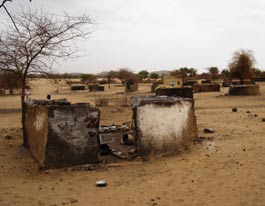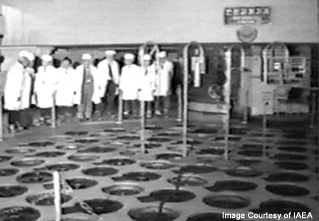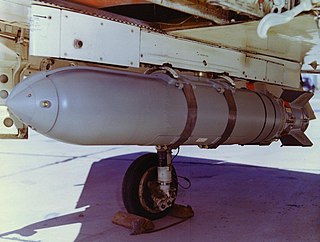
United Nations Security Council Resolution 1695, adopted unanimously on July 15, 2006, banned the selling of material that would further the ability of the Democratic People's Republic of Korea to bolster its ballistic missiles programme. Resolution 1695 was adopted after recalling resolutions 825 (1993) and 1540 (2004) concerning North Korea and the non-proliferation of weapons of mass destruction, respectively.

United Nations Security Council Resolution 1718 was adopted unanimously by the United Nations Security Council on October 14, 2006. The resolution, passed under Chapter VII, Article 41, of the UN Charter, imposes a series of economic and commercial sanctions on the Democratic People's Republic of Korea in the aftermath of that nation's claimed nuclear test of October 9, 2006.

United Nations Security Council Resolution 1737 was unanimously passed by the United Nations Security Council on 23 December 2006.

United Nations Security Council Resolution 1747 was a United Nations Security Council resolution, written with reference to some IAEA reports, that tightened the sanctions imposed on Iran in connection with the Iranian nuclear program. It was adopted unanimously by the United Nations Security Council on 24 March 2007.

United Nations Security Council Resolution 1696, adopted on July 31, 2006, after expressing concern at the intentions of the nuclear programme of Iran, the Council demanded that Iran halt its uranium enrichment programme.

United Nations Security Council resolution 1540 was adopted unanimously on 28 April 2004 regarding the non-proliferation of weapons of mass destruction. The resolution establishes the obligations under Chapter VII of the United Nations Charter for all member states to develop and enforce appropriate legal and regulatory measures against the proliferation of chemical, biological, radiological, and nuclear weapons and their means of delivery, in particular, to prevent the spread of weapons of mass destruction to non-state actors.

United Nations Security Council Resolution 1928, adopted unanimously on June 7, 2010, after recalling resolutions 825 (1993), 1540 (2004), 1695 (2006), 1718 (2006), 1874 (2009) and 1887 (2009) on the topics of North Korea and nuclear weapons, the Council extended the mandate of a panel of experts monitoring sanctions against the country until June 12, 2011.

United Nations Security Council Resolution 1929, adopted on 9 June 2010, after recalling resolutions 1696 (2006), 1737 (2006), 1747 (2007), 1803 (2008), 1835 (2008) and 1887 (2009) concerning the topics of Iran and non-proliferation, the Council noted that Iran had failed to comply with previous Security Council resolutions concerning its nuclear program and imposed further sanctions on the country.

United Nations Security Council Resolution 1945, adopted on October 14, 2010, after recalling previous resolutions on the situation in Sudan, the Council extended the mandate of an expert panel monitoring an arms embargo and other sanctions on groups that "impede peace in Sudan" until October 19, 2011.

United Nations Security Council Resolution 1957, adopted unanimously on 15 December 2010, after recognising positive developments in Iraq since the adoption of 661 (1990), the Council lifted sanctions relating to weapons of mass destruction, long-range ballistic missiles, and the acquisition of nuclear weapons.

United Nations Security Council Resolution 1977, adopted unanimously on April 20, 2011, after recalling resolutions 1540 (2004), 1673 (2006) and 1810 (2008) concerning non-proliferation —to monitor efforts to prevent weapons of mass destruction from being acquired by terrorists or other non-state actors.

United Nations Security Council Resolution 1982, adopted unanimously on May 17, 2011, after recalling all previous resolutions on the situation in Sudan, the Council extended the mandate of an expert panel monitoring the arms embargo and other sanctions against the country until February 19, 2012.

United Nations Security Council Resolution 1985, adopted unanimously on June 10, 2011, after recalling resolutions 825 (1993), 1540 (2004), 1695 (2006), 1718 (2006), 1874 (2009), 1887 (2009), 1928 (2010) on the topics of North Korea and nuclear weapons, the Council extended the mandate of an expert panel monitoring sanctions against the country until June 12, 2012.

United Nations Security Council Resolution 1673, adopted unanimously on April 27, 2006, after considering a report from the Committee of the Security Council established in Resolution 1540 (2004) concerning non-proliferation, the Council extended the mandate of the Committee monitoring the resolution's implementation concerning weapons of mass destruction and their means of delivery until April 27, 2008.
United Nations Security Council Resolution 1810 was unanimously adopted on 25 April 2008.

United Nations Security Council Resolution 2050 was unanimously adopted on 12 June 2012. It extends the UN's mandate to monitor nuclear, chemical and biological weapons possessed by North Korea, extending the mandate of the Panel of Experts.

On March 4, 2015, the United Nations Security Council unanimously adopted Resolution 2207 on North Korea. The resolution extended the mandate of the Panel of Experts, which supports activities of the ‘1718 Sanctions Committee’, for one year to April 5, 2016.

The UN Security Council Sanctions Committee on North Korea is a subsidiary body established in 2006 by the UN Security Council's resolution 1718 in response to North Korea's first nuclear test and its other nuclear proliferation efforts.














